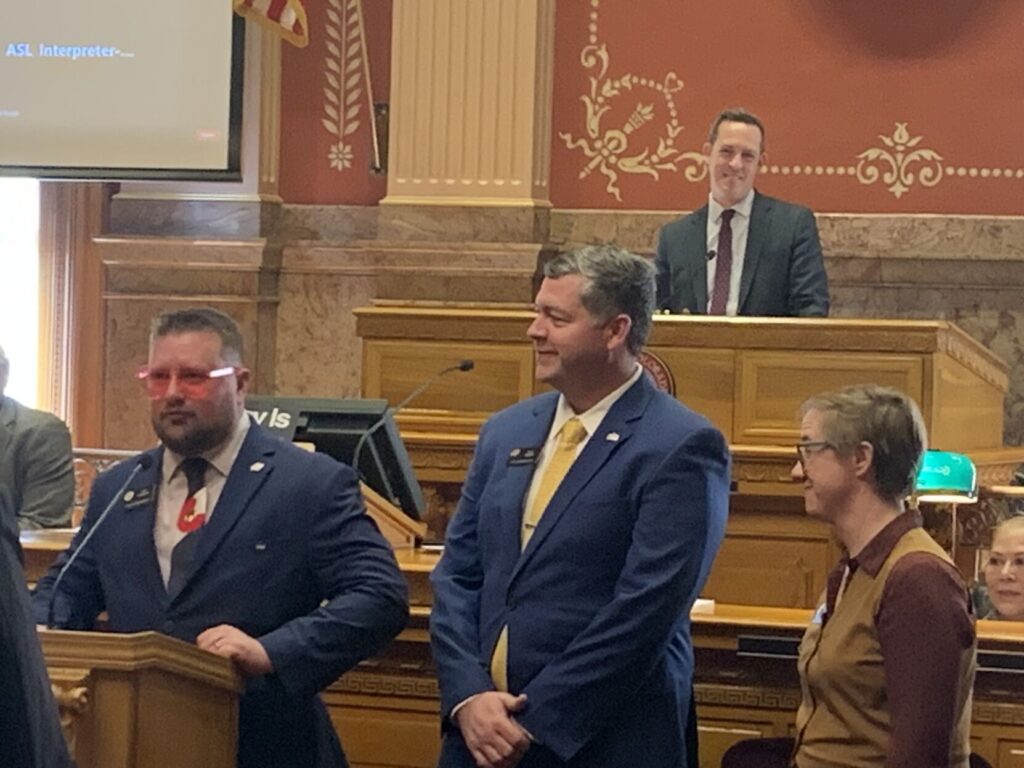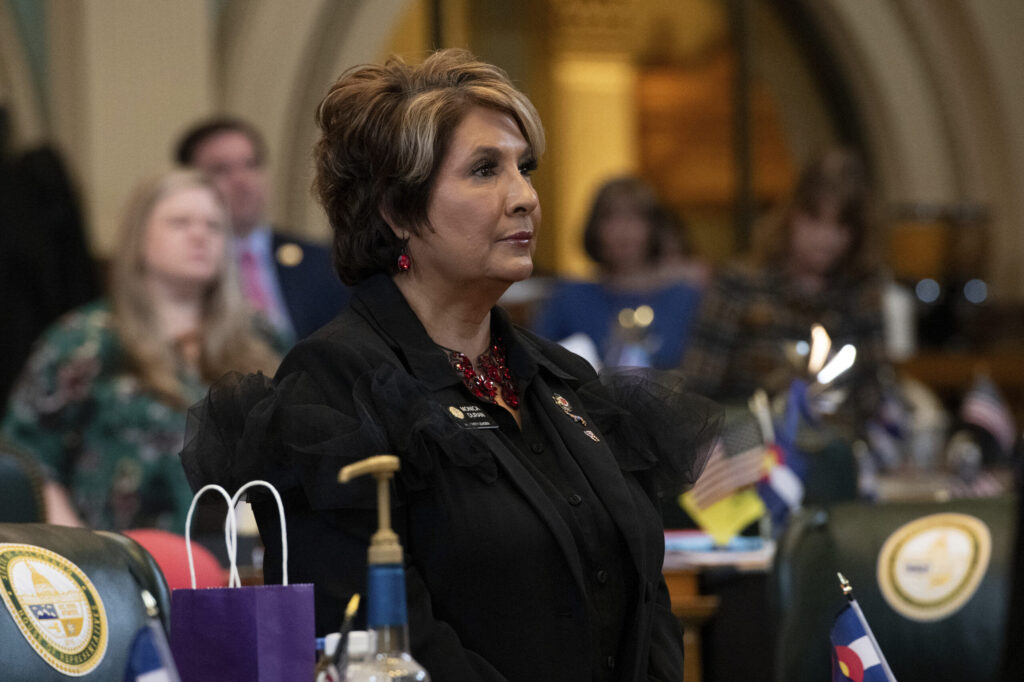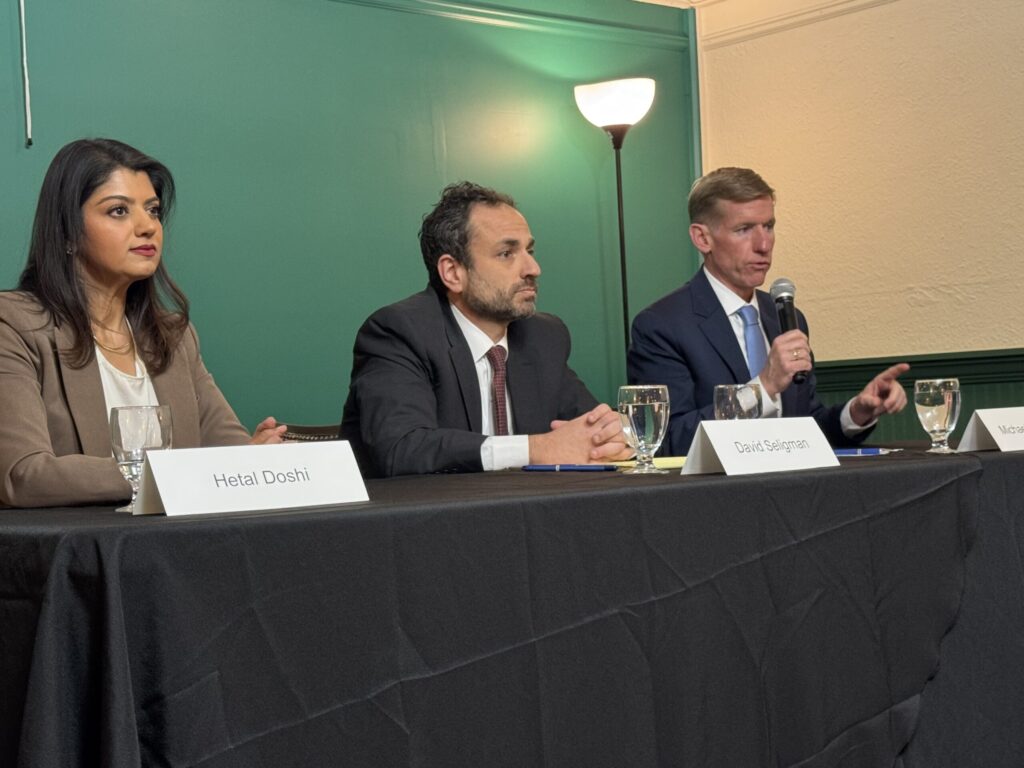Colorado considers strengthening Equal Pay for Equal Work Act

After working at the same company for over 20 years, Michelle Siemer said she was still paid less than the men she supervised.
Siemer, an Eagle County mother of three, said she spent decades collecting accolades and additional responsibilities at her job. But while Siemer had the same duties as many of the male senior managers at her company, she remained a manager, and her pay reflected the lower status. Siemer said she advocated for promotions and raises but was repeatedly denied, leading her to leave the company last year.
“I stayed as long as I did because I wanted to provide for my family,” Siemer said. “Many other women have also been underpaid by my former employer and are afraid of rocking the boat. Women with children don’t rock the boat because we are afraid our kids will fall out.”
Though Colorado passed the Equal Pay for Equal Work Act in 2019, requiring businesses to provide equal pay to employees performing substantially similar work, many women say they continue to face pay discrimination in the workplace.
Lawmakers are trying to address these gaps with Senate Bill 105. If passed, the bill would implement measures to enforce the Equal Pay for Equal Work Act and make other updates to the law. The bill cleared its first committee hearing on Tuesday.
“The Equal Pay for Equal Work Act is working … but we have learned many things since it passed,” said Sen. Janet Buckner, D-Aurora, who sponsored the act in 2019 and is now sponsoring SB 105. “This bill is a result of conversations with stakeholders, people in the community and organizations about how we can improve.”
The Equal Pay for Equal Work Act took effect on Jan. 1, 2021. The law included several mandates intended to even the playing field for workers, such as requiring employers to notify employees of promotion opportunities, including pay or a pay range in job postings and allowing employees to sue employers for gender-based pay discrepancies.
In 2021, women working full-time in Colorado were paid 83% of what men earned, according to the Women’s Foundation of Colorado. That’s higher than 78% in 2020 before the Equal Pay for Equal Work Act took effect, but still falls short of the state’s all-time high of 86% in 2019, according to the U.S. Bureau of Labor Statistics. The difference is only exacerbated for women of color.
If passed by the full state legislature, SB 105 would require the Department of Labor and Employment to investigate pay inequities and enforce equal pay mandates. The bill would also extend the maximum back pay period for pay inequalities to six years and allow employers to not notify employees about career development changes that are not technically promotions or jobs that other candidates could be considered for.
The Senate Business, Labor and Technology Committee voted 7-2 to advance the bill on Tuesday, sending it to the Senate Appropriations Committee for further consideration.
“Men and women are still being paid different for the exact same work,” said Sen. Jessie Danielson, D-Wheat Ridge, who also sponsored both bills. “The reality is unless we continue to strengthen the Equal Pay for Equal Work Act, women will be underpaid when compared to men.”
The bill’s advancement came after hours of debate and testimony spread over two committee hearings, with more than a dozen organizations registering both against and in favor of the bill.
Opponents argued that the original Equal Pay for Equal Work Act had unintended consequences that negatively impacted Colorado businesses and workers. Particularly, critics pointed to the requirement that employers include pay or pay ranges in job postings.
In 2021, the Wall Street Journal reported that national companies excluded Coloradans from applying for remote work positions because of this requirement.
“SB 105 falls short of addressing many functional gaps created by the 2019 law,” said Jessica Kostelnik with the Denver Metro Chamber of Commerce, which opposed the bill. “The 2019 bill unintentionally limited opportunities for Coloradans rather than expanding those opportunities and building equity, ultimately hurting the exact communities the initial proposal was intended to help.”
Other opponents argued that requiring employers to notify employees of promotion opportunities makes it more difficult to promote internal candidates and award step promotions. While SB 105 is seeking to address this component of the 2019 bill, many business organizations want the notification element to be eliminated entirely.
“Hiring and promotion decisions are complex and many factors drive those decisions,” said Alison Morgan with the Colorado Bankers Association. “In the absence of contextual information, the notification requirement can create workplace conflict more than it can help with transparency.”
But proponents of the bill say change is needed as some businesses simply aren’t obeying the requirements under the Equal Pay for Equal Work Act.
Stephanie Charlton said she was the human resources manager of a Denver manufacturing company for five years, including when the Equal Pay for Equal Work Act went into effect in 2021. She said company leadership pushed back on attempts to comply with the new law, including telling her not to hire women to work on the shop floor because they would “distract male employees.”
The next year, Charlton went on maternity leave after having a baby. On the day she returned to the office, Charlton said she was told she was being replaced by a man. Charlton said the man was immediately paid more than her for the same job and received the position as a promotion which was not announced to other employees as required by the Equal Pay for Equal Work Act. She called the experience “devastating” for her family.
“It’s a year later and we’re still trying to put the pieces back together,” Charlton said. “I don’t want this to happen to anybody else. (The company) employs around 150 people in Colorado and they are not taking the rules of Colorado seriously.”
Groups backing the bill include the Colorado Business and Professional Women, Colorado Fiscal Institute, Colorado Children’s Campaign, Interfaith Alliance of Colorado, League of Women Voters of Colorado, Women’s Foundation of Colorado and 9to5 Colorado.
Organizations opposed to the bill include the chambers of commerce of Denver, Colorado Springs and the state of Colorado, in addition to the Colorado Hospital Association, Economic Development Council of Colorado, Colorado Bankers Association and Colorado Contractors Association.
Six Democrats and one Republican voted in support of the bill Tuesday, while two Republicans voted against it, citing solidarity with business organizations.
If passed by the full state legislature, the bill would go into effect on Jan. 1, 2024.














